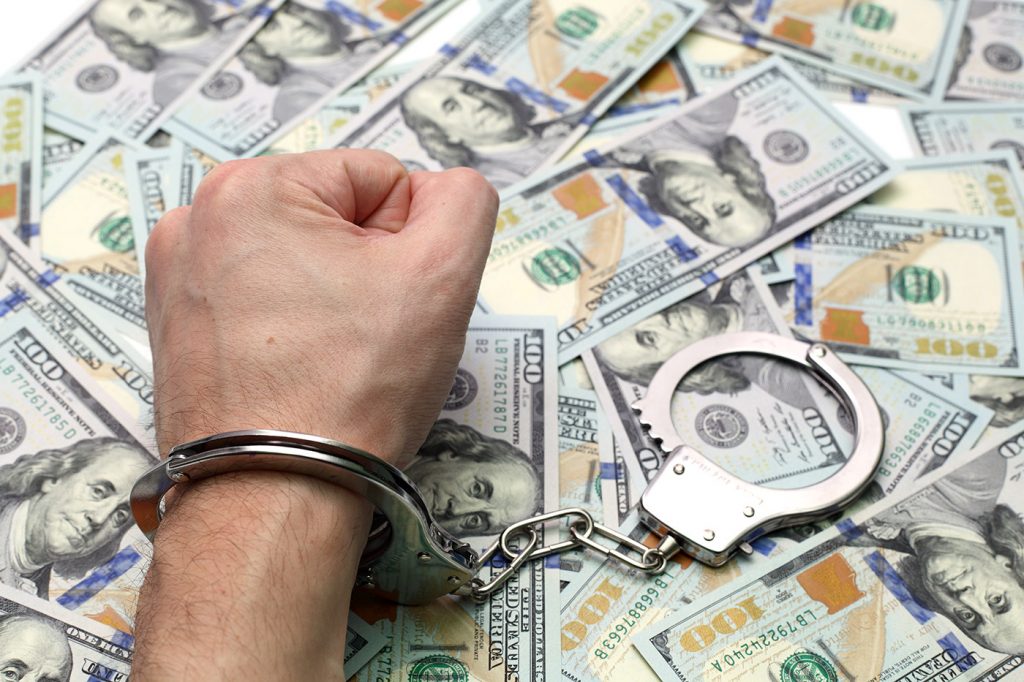Kalief Browder, an African American sixteen year old from the Bronx in New York City, was walking home from a party with his friend when he was stopped by police unexpectedly and charged with an alleged theft in 2010. The accuser, Roberto Bautista, was sitting in a police squad car and identified Browder and his friend as the thieves. The theft was a backpack that was said to contain $700 dollars, a credit card, and an iPod Touch. In his interrogation, with police, Kalief Browder insisted that he had not robbed anyone and that neither the backpack nor its contents would be found in his possession. Browder and his friend were then taken to the precinct where they were processed and taken to central booking. Within the following 48 hours Browder was interrogated and charged with robbery, grand larceny, and assault. At arraignment, bail was set at $3,000 dollars. If Browder’s family used a bondsman the amount would be ten percent plus fees or around $900 dollars for his bail to the bondsman. The bondsman would then post the entire bail amount with the court. The family could not pay $900 resulting in Browder remaining imprisoned at Rikers Island for the next three years.1


Debtors jail in colonial America was used to lock up those who owed money to the government. In today’s society, it translates into the cash bail system. 4 The for-profit bail system in the United States is used to keep those who are accused of breaking the law from harming anybody else or to be sure the accused will appear in court. If the accused is unable to pay the bail at the time of the arraignment, they may use a bondsman or they will remain incarcerated until their trial. For the poor, it is the latter. For Kalief Browder it was the beginning of the end. Only two countries in the whole world have a cash bail system, the United Sates and the Philippines. The cash bail system results in unnecessarily imprisoning citizens who do not pose as a threat to society and who most likely are not a flight risk. No pre-trial information is given to a judge before setting bail and there are no set standards on setting the amount for bail per case.5 Those who are wealthy enough to pay avoid the scarring effect prison has on one’s life. But for those who cannot afford bail, they face violence behind bars, debt, isolation, and at minimum a harsh punishment for those later found innocent, as in Kalief Browder’s case. This has created a two tier system in our judicial process. The first tier are wealthy offenders who can post bail and the second tier is everyone else who cannot afford equal justice or treatment.
Statistics show that 60 percent of people in jail from 2005 to 2015 were in jail awaiting trial. Three fourths of these individuals were accused of nonviolent crimes.6 This is alarming. On a national level, the United States imprisons persons who are essentially living in poverty and who are more susceptible to being involved or accused of a crime. In some instances, the court can grant “release on one’s own recognizance” or ROR. However, this is determined on a state by state standard. An example of this would be New York, the judicial system there would be more willing to grant ROR if the individual has a cellphone, has had a New York address for a year and has a job.7 These may seem like easy standards to meet, but consider those who are homeless, unemployed or cannot afford a cellular service on a regular basis. Their fate rests upon pre-trial bail. The bail money that the defendant does not have, requiring a bondsman, but not always attainable either.

- Johnson, Stephon “‘Time: The Kalief Browder Story’ Shows Failure of Justice System” New York Amsterdam News, March 2, 2017 http://blume.stmarytx.edu:2048/login?url=http://search.ebscohost.com/login.aspx?direct=true&db=a9h&AN=121613807&site=ehost-live&scope=site. ↵
- Schwirtz, Michael, and Michael Winerip “Kalief Browder, Held at Rikers Island for 3 Years Without Trial, Commits Suicide” The New York Times June 08, 2015 https://www.nytimes.com/2015/06/09/nyregion/kalief-browder-held-at-rikers-island-for-3-years-without-trial-commits-suicide.html. ↵
- Schwirtz, Michael, and Michael Winerip “Kalief Browder, Held at Rikers Island for 3 Years Without Trial, Commits Suicide” The New York Times June 08, 2015 https://www.nytimes.com/2015/06/09/nyregion/kalief-browder-held-at-rikers-island-for-3-years-without-trial-commits-suicide.html. ↵
- Steinberg, Robin “Robin Steinberg: What If We Ended the Injustice of Bail?” TED (June 18, 2016.) Https://www.youtube.com/watch?v=3B24RaqA33k . ↵
- Lally, Sean “Can the U.S.Radically Alter Its Cash Bail System?” (October 23, 2017) https://attorneys.us/can-u-s-radically-alter-cash-bail-system/. ↵
- Gunasekera, Yousha “Bail Means Jail: Debtor’s Prison for the Unconvicted.” Progressive 81, no6 (August 2017): 56–59 http://blume.stmarytx.edu:2048/login?url=http://search.ebscohost.com/login.aspx?direct=true&db=a9h&AN=123986116&site=ehost-live&scope=site. ↵
- King, Elizabeth “Inside the Fight to End Cash Bail” Pacific Standard January 08, 2018 https://psmag.com/social-justice/meet-the-reformers-taking-on-alec-to-end-cash-bail. ↵
- “Bail Bond Services for Waco, Texas” Kocian Bail Bonds December 14, 2015 https://www.bailbondskocian.com/. ↵
- “Bail Reform” Official Website – Assemblyman Rob Bonta Representing the 18th California Assembly District (March 29, 2018) Accessed September 21, 2018 https://a18.asmdc.org/article/bail-reform. ↵
- Gonnerman, Jennifer “Before the Law” The New Yorker December 08, 2017 https://www.newyorker.com/magazine/2014/10/06/before-the-law. ↵


123 comments
Robert Ruiz
This is a very well written, interesting article. There were a couple of points you made, that I think were very powerful. When you said “Only two countries in the whole world have a cash bail system, the United Sates and the Philippines.” And when you said, “This has created a two tier system in our judicial process.” These two statements stuck out to me the most. It is a reminder that our for-profit bail system is rigged, and when we look around the world, why are we doing it? The only edit I might of added was a little longer conclusion with some solutions or maybe people fighting to change this. Overall, great article, I learned something and was entertaining.
Matthew Wyatt
The for-profit bail system is a stain on the American judicial system, and Kalief Browder is just one of many examples of the damage it can do. This article serves as an important reminder that, when one is accused of a crime, freedom literally is not free. That being said, I think the article would benefit from the addition of a stronger concluding paragraph. Perhaps, one that highlights ways in which the for-bail system might be reformed in the future. However, this criticism does not detract from the significance of this topic and the skill with which it has been presented.
Mariah Cavanaugh
Your topic of for-profit bail systems was a fantastic choice. This is a huge problem and one that is recently gaining traction in the public eye. I am familiar with Kalief Browder’s story and it is such a heartbreaking one. You did Kalief Browder justice with the way in which you portrayed his hardships and the injustice of for-profit bail.
Lynsey Mott
Coming from a father who has spent the past 10 to 15 years working in a prison, and knowing the outcomes when people go to jail, I know that a lot of people have to wait to be free even though it says they will be free at a certain time. So knowing that 60% of the people in jail wait their turn isn’t that surprising. It really just shows how slow our court system is and how some cases take precedence over other cases. The thing I don’t get though is why do we have to pay to be free? I though America was already free, and now if we are in court, we have to pay in order to be let out before the trial? It doesn’t make sense.
Daniel
This was a great article
Jesse
This article really opened up my eyes to the injustice that happens every single day.
It was very informative and very well written.
Rylie Kieny
I have never really considered the bail system in the United States. I always knew it was an important piece to our prison systems but never thought about it in depth. I think this article does a good job describing the possible corruptness of the system and the flaws it poses. Its sad that a young man lost three years of his life awaiting a trial in which he was found innocent. I think the bail system only aids those who are wealthy and is unfair of those in lower classes. I don’t believe people should just rot in jail as the await for a decision to be made.
Alyssa Garza
This article is interesting since it shows us how messed up our government really is. The rich that are mainly guilty get to make bail but the working-class citizens and under must suffer because they don’t have the money to make bail. Our government can see there’s no evidence to prove someone guilty but, yet they still lock them up in jail for a crime they didn’t commit.
Andrea Cabrera
This was a very concise and informative article! The statistics of 60% of people in jail awaiting trial is alarming. We have come to learn about stories of police officers imprisoning people who are typically live in poverty and are more susceptible to being involved or accused of a crime. I agree with the last statement of “we are all entitled to our freedom without collateral or a fee,” since one of our rights is to go to trial and be charged as guilty until proven so.
Santiago Aragon
10/10 would recommend to read. Both educational and interesting.
⭐️⭐️⭐️⭐️